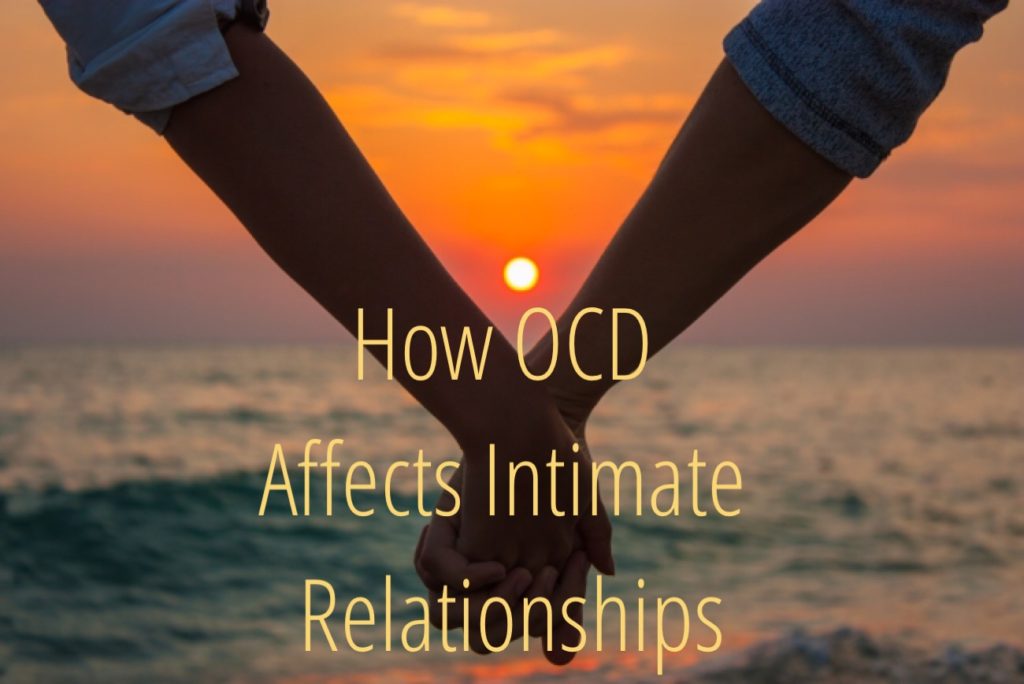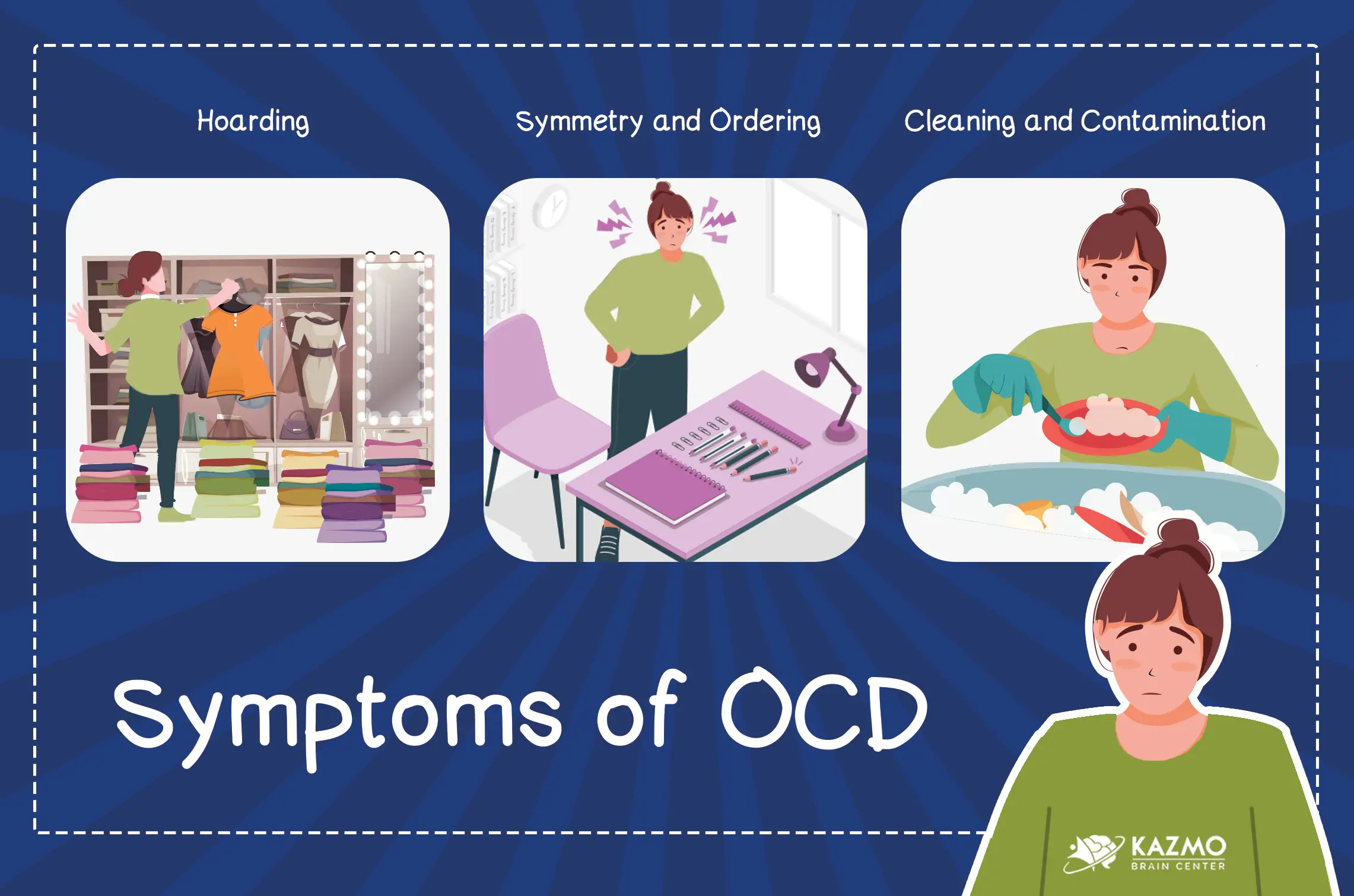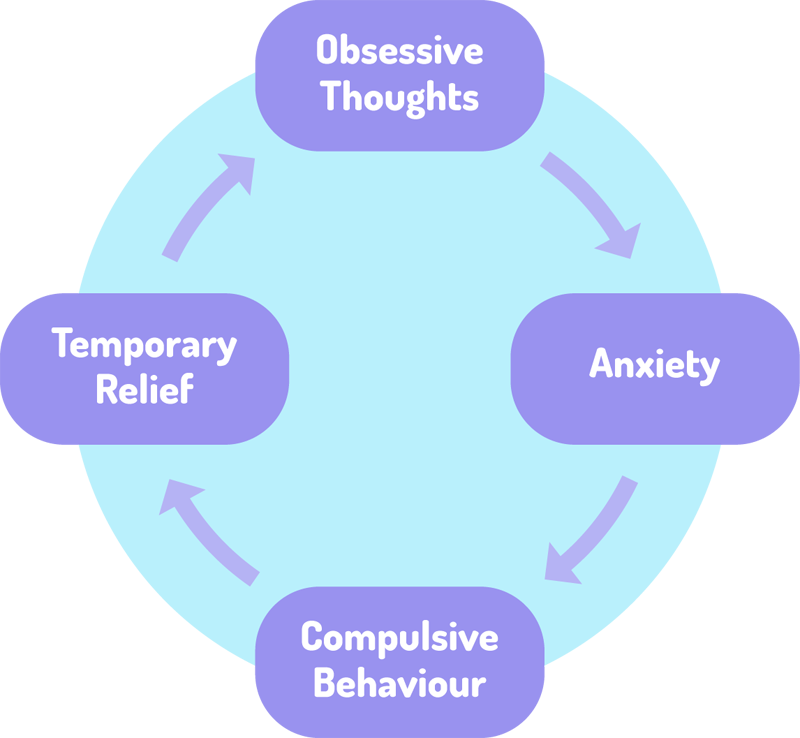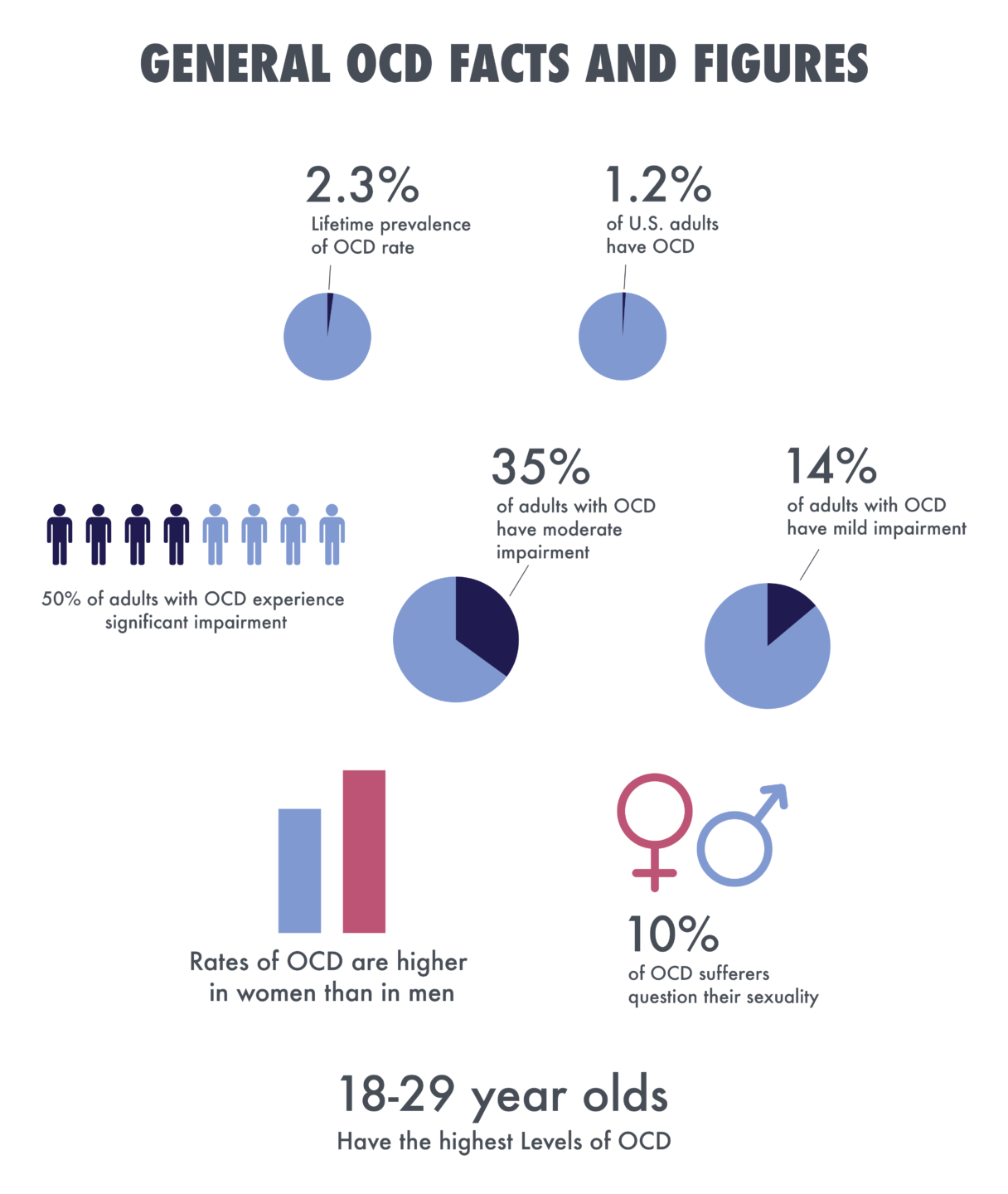
OCD en Relaties en hoe je het herkent YouTube
Epidemiological studies of obsessive-compulsive disorder (OCD) indicate a lifetime prevalence rate of 1% to 3% and a point prevalence of 2%.1-3 Researchers have reported that the mean age of onset of OCD is 20 years of age and that the mean duration of the period in which the disorder is untreated after the start of the symptoms is 9 years.4 A report from the World Health Organization listed.

OCD Obsessive Compulsive Disorder • Anxiety & OCD Treatment Center of Florida
Obsessive-compulsive disorder (OCD) is a long-lasting disorder in which a person experiences uncontrollable and recurring thoughts (obsessions), engages in repetitive behaviors (compulsions), or both. People with OCD have time-consuming symptoms that can cause significant distress or interfere with daily life. However, treatment is available to.

Types of OCD (Obsessive Compulsive Disorder) Visual.ly
Relationship OCD (ROCD) is a subtype of obsessive-compulsive disorder in which people experience unwanted and persistent thoughts about their current or past relationships, known as obsessions. Many of us experience varying levels of relationship anxiety from time to time. However, for those with ROCD, these obsessions are all-consuming and.

Obsessive Compulsive Disorder Simplified Diagnosis and Treatment of OCD A Psychiatrist Explains
OCD is a slow-onset disorder, but we can often trace the beginnings of obsessions and compulsions to either a stressful life event or a life change that bestows greater responsibilities on the.

How OCD Affects Relationships Revive Ketamine Clinic in Memphis, TN
Obsessive-compulsive disorder (OCD) is a highly prevalent and chronic condition that is associated with substantial global disability. OCD is the key example of the 'obsessive-compulsive and related disorders', a group of conditions which are now classified together in the Diagnostic and Statistical Manual of Mental Disorders, Fifth Edition, and the International Classification of.

Tips for Dating With OCD YouTube
Obsessive-compulsive disorder (OCD) is often a disabling condition consisting of bothersome intrusive thoughts that elicit a feeling of discomfort. To reduce the anxiety and distress associated with these thoughts, the patient may employ compulsions or rituals. These rituals may be personal and private, or they may involve others participating; the rituals are to compensate for the ego.

Understanding OCD Obsessive Compulsive Disorder Therapy Birmingham
Myth 4: People with OCD just need to relax. Again—nope. A person with OCD most definitely is struggling with anxiety, but it stems from the continual intrusion of obsessive, upsetting thought.

🎖 OCD och intima relationer
Obsessive-compulsive disorder (OCD) is a mental disorder in which people experience unwanted and repeated thoughts, feelings, images, or sensations (obsessions) and engage in behaviors or mental.

How OCD Affects Relationships GroundWork Counseling
Obsessive-compulsive disorder (OCD) is slightly more common among women than men and affects about 1 to 2% of the population. On average, OCD begins at about age 19 to 20 years, but about 25% of cases begin by age 14 (see also Obsessive-Compulsive Disorder in Children and Adolescents Obsessive-Compulsive Disorder (OCD) and Related Disorders in Children and Adolescents Obsessive-compulsive.

OCD Is Not What You Think It Is Enriched Couples
People with ROCD struggle to fully engage in and enjoy their relationships and their overall lives. This post is a continuation of an interview I conducted with Prof. Guy Doron and Dr. Danny Derby.

OCD en Relaties Waarom Relatie OCD leidt tot intense twijfel
Disorders Related to OCD. One of the stumbling blocks to accessing effective treatment for individuals with OCD is that OCD can sometimes be confused with other disorders. The newest edition of the Diagnostic and Statistical Manual of Mental Disorders (DSM-5) — which mental health professionals use to help diagnose mental health disorders.

Disorder (OCD) Kazmo Brain Center
From hoarding to handwashing to forever checking the stove, obsessive-compulsive disorder (OCD) takes many forms. It is an anxiety disorder that traps people in repetitive thoughts and behavioral.
:max_bytes(150000):strip_icc()/what-are-the-different-types-of-ocd-2510663_color3-5b3f8fda46e0fb00370d01bf.png)
OCD Subtypes Different Subtypes of Disorder
OCD symptoms tend to wax and wane over time. Sometimes they may be little more than background noise; at other times they may be very distressing and disturbing. OCD can start at any time from preschool age to adulthood (usually by age 40). One third to one half of adults report that their OCD started during childhood.

OBSESSIVE COMPULSIVE DISORDER(OCD)
What is the difference between OCD and OCPD? Even though they sound similar, obsessive-compulsive disorder (OCD) and obsessive-compulsive personality disorder (OCPD) are different conditions.. OCPD is a personality disorder that causes an extensive preoccupation with perfectionism, organization and control.. People with OCD are usually aware that their obsessions and compulsions are.

OCD en Relaties Waarom Relatie OCD leidt tot intense twijfel
Symptoms focus on doubts and preoccupations about how the person feels toward their partner, how they think their partner feels toward them, and the "rightness" of their relationship. Obsessions can manifest in ways such as images, thoughts, and urges. Symptom triggers might include experiencing negative feelings (including boredom or distress.

A Guide to Obsessive Compulsive Disorder Statistics and Treatment
Causes. The cause of obsessive-compulsive disorder isn't fully understood. Main theories include: Biology. OCD may be due to changes in your body's natural chemistry or brain functions.; Genetics. OCD may have a genetic component, but specific genes have yet to be found.; Learning. Obsessive fears and compulsive behaviors can be learned from watching family members or learning them over time.